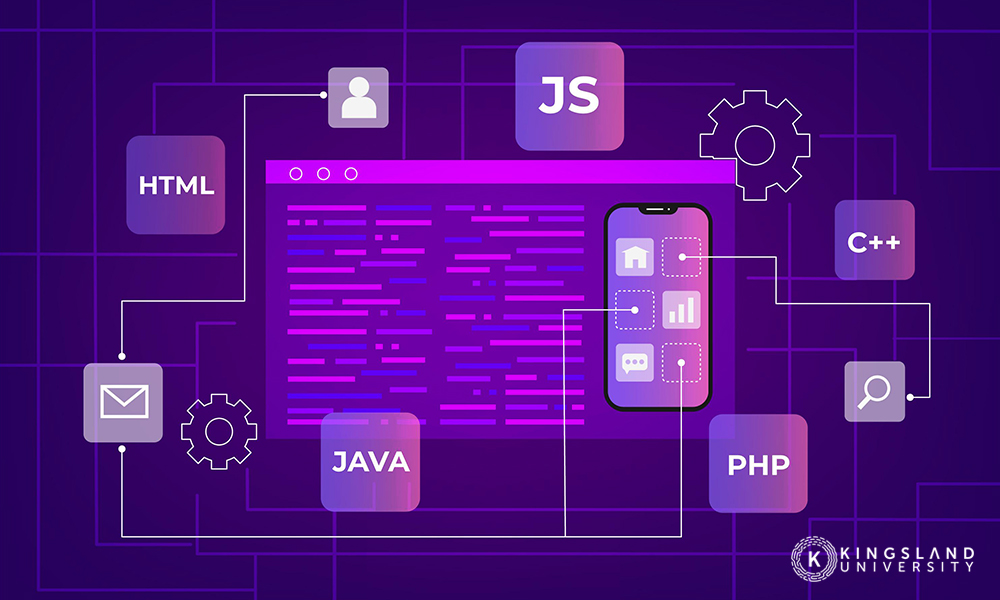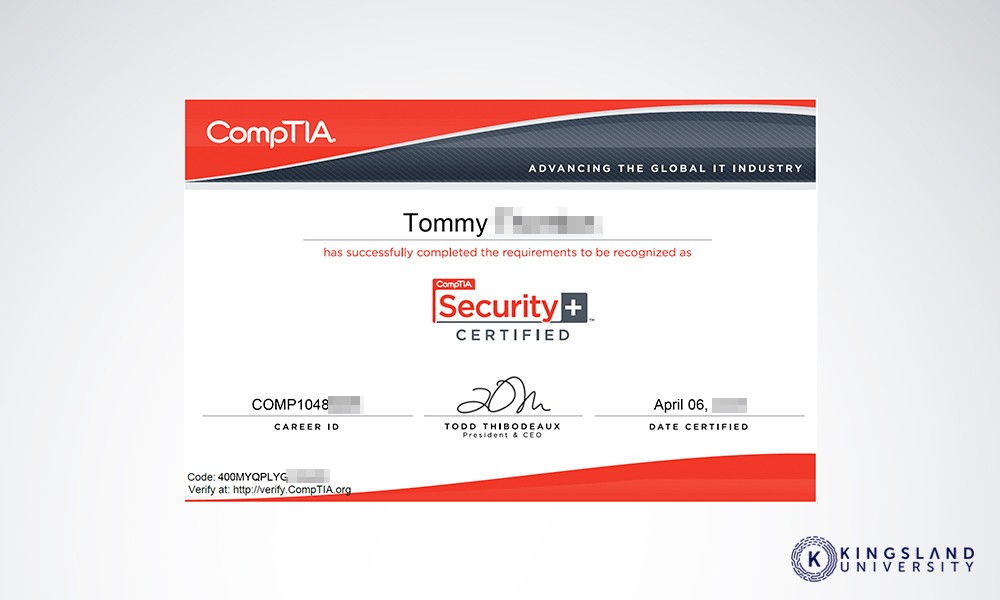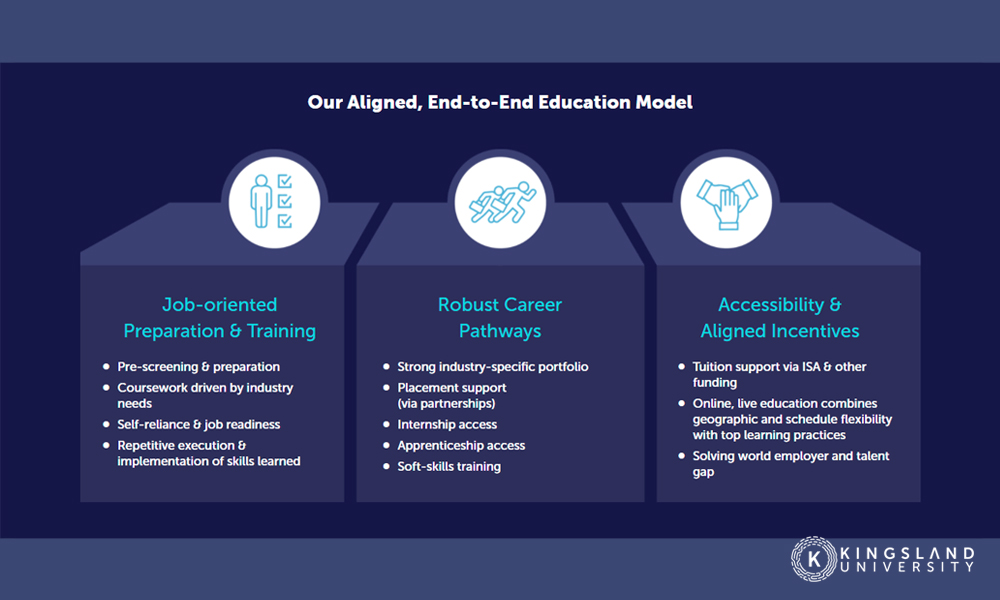
There are many possible paths to a career in development. The industry gets more and more codified every year, and the wild west days of the self-taught rockstar developer are just about over, but that doesn’t mean you can’t teach yourself to code and still get a good job. You just won’t have the same experience as someone who did the same thing 50 years ago.
These days, you can define three different primary paths from a starting point – say high school – to a career in development. They are:
- Self-Taught. The self-taught developer has a keen interest in computers, coding, and the way things work. Their motivation and drive to learn will see them absorbing information about common and uncommon coding languages, and opens doors that traditional schooling may not.
- Coding Bootcamps. The boot camp student may be enrolled in some form of official school, or they might be taking it up as a more structured version of self-teaching. Through these boot camps, students can learn from a structured course, but take it at their own pace.
- College. Self-taught programmers over the years have become less common, largely because many modern institutions now offer IT and developer courses. Enrolling in a college course can earn you a variety of certificates and degrees, and prepare you well for going out into the workforce.
With these three paths open to you, you’re left with a decision: which one should you pursue? Let’s talk about the concerns you may have and the specifics you should watch for when investigating any possible career path.
Languages Learned
One of the most important parts of any program, no matter whether you’re teaching yourself or going through a full degree program from an Ivy-league school, is the languages you learn through that program.
The programming language you decide on plays a huge role in your future prospects and your ability to progress both beyond your education and in the job market. Some languages are better suited than others. For example, JavaScript is extremely common and relatively easy to learn and gives you a good opening into both the front-end and back-end development. Python is a good introductory language for basic object-oriented programming and can give you a great introduction to the core concepts of programming in general, but it’s not frequently used in high-end development roles. COBOL is an old language that has largely fallen out of style, so it isn’t in high demand, but COBOL programmers are few and far between, so they are highly sought-after by the companies that still run mainframes that use it.

The language or languages you learn through your education will determine what roles are open to you. It can be worthwhile to do some research into prospective career paths, to see what interests you and what you should learn if you want to pursue that career. A game developer might have a different language focus than an enterprise developer, who will be different from a full-stack developer, and so on.
Self-Taught developers can learn any language that interests them. There are books, videos, and courses out there for pretty much any language, written to varying degrees of competency. The only trouble is if one of the more useful languages is less interesting to learn, it can be quite difficult to want to pursue it in a self-taught environment.
Bootcamp developers are slightly more restricted. Coding boot camps exist for a variety of different languages, but not every language that exists, so it can be slightly more difficult to find a good program to pursue.
College developers get the most structured and detailed education in their languages, but the languages available may be limited, depending on the college and courses that you decide on. Some college professors might only know one or two languages, and learning more exotic languages can be the realm of specialty schools and one-on-one studies.
Cost
The rising costs of education are on every student’s mind these days. It’s not like the 70s, where a part-time job could pay for a college education and a house to live in while you’re learning. These days, degree programs can be very expensive, and if you choose the wrong career path initially, it can be a very expensive mistake. It is because of this that boot camps and other forms of educating yourself are becoming increasingly common.

Self-Taught students tend to spend the least amount of money on their educations. You might buy a book or an online course, but most of the time you don’t even need that. Programmers and developers form communities, and they share information amongst themselves within those communities. Being an active participant can help you learn the answers to just about any question with the assistance of the people who have walked these steps before you.
Bootcamp students generally pay a small fee to purchase courses or enrollment in boot camps themselves, but the overall cost is nowhere near that of a full college course. Boot camps are priced cheap because they’re meant to be accessible to anyone who wants to learn. The caveat, of course, is that a boot camp is not dynamic or led by an instructor; it’s usually a series of slide decks or videos with coursework, but no actual direct contact with the instructor.
College students may very well get the best education, depending on the quality of their instructors. Some instructors and some institutions have fantastic programs that fully prepare you for your chosen career. Others phone it in. It can be a huge decision to decide on an educational institution, vet their instructors, and ensure the quality of a program. Colleges are usually the most expensive option but have the greatest potential for eventual success.
Duration of Program
How long does your program take to get from start to job-ready? In large part, this depends on how well you’re able to sell yourself to the companies interested in hiring you. A self-taught programmer who has been working throughout their high school years can be hired on for a developer position without any higher education. On the other hand, plenty of people have graduated from college and discovered that the skills they learned don’t match the job market, and they have to embark on further education to gain the skills they need to get hired.
Self-Taught developers don’t necessarily have a duration to their programs, because their programs last as long as they’re interested in learning. And, to some extent, we’re all self-taught. Any education beyond what we learn in school is self-taught education and can be valuable as skills for future employers. That said, it often only takes 6-12 months to teach yourself enough of any given language or skill set to be able to use it in a career. IF you pick the right languages and study in the right way, you can be job-ready in under a year.
Bootcamps tend to last anywhere from a few weeks to a few months. Some boot camps are longer and more structured, but the main power of a boot camp is the ability to start it whenever you want, so it’s less structured than traditional schooling. You have to be motivated; the videos can teach you theory, but you need to put it into practice on your own if you want to gain hands-on experience with the languages in question.

College programs range from two-year degrees to four-year degrees and more. Some of the more modern, innovative programs last only a year and teach you a concentrated set of fundamentals without the unnecessary cruft of a program with general education requirements. Others might take a full four years to teach you everything from the very basic fundamentals of programming all the way up to advanced use-cases for specific industries.
Job Placement and Prospects
There’s one question on everyone’s mind when they’re looking into education and educational programs. “How likely is this to get me a job?” You don’t go into a college program with no idea of the job prospects when you come out of the other side.
Self-Taught programs have no job placement or job guarantees. You have to rely on your own skills and motivations to prove yourself to employers, and you have to find employers willing to hire someone with either no higher education or an unrelated degree. This isn’t impossible – many employers look for demonstration of ability over a degree in a frame – but it can be more difficult than going through an accredited program that proves your ability.
Bootcamps likewise don’t offer job placement, in general. Some of them may be designed to prepare you for specific certifications or tests that you can pass to prove your skills in a tangible manner, such as various IT and cybersecurity certificates, which can help you land a job where those skills are required. On the other hand, not all boot camps offer that level of focused preparation.

Colleges tend to offer at least some level of job placement, whether it’s an employment department that works with a university, a series of employers who work with the organization to recognize and hire from their student population, or job placement guarantees. Of course, a lot depends on the state of the job market by the time you’re done with the program, as well as the demand of the industry you’re pursuing.
Scheduling and Availability
Another factor that can influence the decision of the kind of education you pursue is how available it is. While many prospective students are high school graduates looking to move into another full-time school for further studies, there are plenty of non-traditional students who only have part-time availability, have jobs or families that demand much of their attention, or who would prefer to take classes in a night school format.

Self-Taught programs are, of course, the most flexible. You can learn at your own pace, however you like, whenever you’re interested in it. The downside is, of course, the lack of structure. If you’re not motivated enough, it’s easy to put a book on a shelf and never finish reading it. You have to be good at your own time management and investment in your education, and that can be quite difficult when the other pressures of life get to you.
Bootcamps may or may not have limited availability. Some are in subscription programs, where you have to pay for access, and only have that access for a limited time. Others are time-sensitive courses with enrollment available only during particular parts of the year. Some modern hybrid programs run boot camps in a style similar to college classes, but with less direct classwork and more self-motivated study. It can vary a lot depending on the course.
Colleges are just like other educational programs. Most of their classes are only available in specific semesters, and if you miss enrollment, you’ll likely need to wait. Non-traditional schedules may still be beholden to the semester format as well. They are generally the most structured but depending on the course could be a bit less flexible.
Picking the Path That’s Right for You
So, which of the three styles of the educational path is the right choice for you? Using the factors above, you should be able to make a decision.
Self-Taught education can be very powerful if you’re interested and motivated. You can learn quickly, take tests to earn certifications on your own time, and leverage those certifications to get a job faster than your peers would through traditional institutions. Self-teaching can also be a good way to explore career paths that you aren’t sure you want to dedicate yourself to before you invest in paying for something like a college degree.
Bootcamps are a good hybrid option. They can give you structure and deadlines to help you pursue your education if you aren’t truly interested but think you might want to learn, or if you have trouble with time management and motivation. On the other hand, they do still require significant discipline to learn what you need to progress into a career.
Colleges are the most structured and the most likely to land you a job when you’re done with them, but they may also take a little longer, and they might not offer the flexibility you may need or the topics you want to study. Many career paths have college requirements (or at the very least require that you are certified), and a university degree and training will help you accomplish both.

There’s also the hybrid option, like what we offer. Our programs are sort of a cross between a college program and a boot camp. We offer structure and instruction, but a focused and streamlined education that pushes you towards the job market with the skills you need to succeed.
Explore your options, make your decision, and take your first steps towards your dream job.


